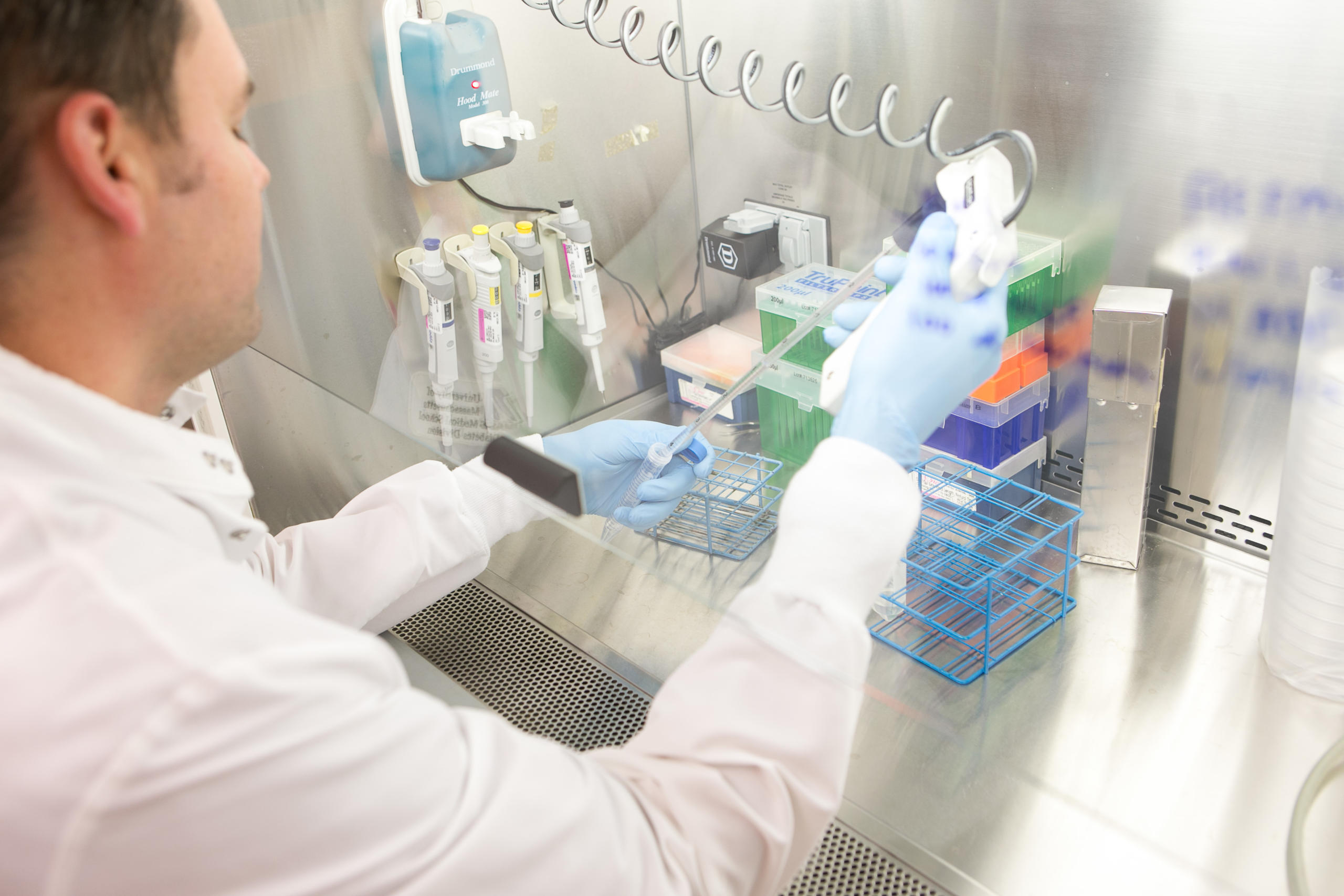
In type 1 diabetes (T1D), receiving transplanted donor beta cells restores blood-sugar control and significantly improves people’s quality of life. The current approach, however, is available to a limited number of people and these individuals need to take immunosuppressive drugs for the rest of their lives.
Our ambition at Breakthrough T1D is to bring beta cell replacement therapies to the broader T1D community with renewable cell sources and without the need for chronic immune suppressing drugs.
We’ve already solved a key challenge: After more than a decade of research, steered by Breakthrough T1D, Douglas A. Melton, Ph.D., and colleagues have solved the major obstacle of generating unlimited numbers of beta cells using stem cells, in 2014. Now, Dr. Melton, the principal investigator on the new New England Center of Excellence, will focus on the challenge of protecting these cells from rejection by the immune system that occur following transplantation.
Dr. Melton, in partnership with Breakthrough T1D research leadership, has assembled a multidisciplinary team that includes key diabetes investigators involved in cellular biology and immunology research, from five institutions: Harvard University, University of Massachusetts Medical School, Joslin Diabetes Center, The Jackson Laboratory, and Dana-Farber Cancer Institute.
They are applying their talents toward one of the most exciting, emerging fields: Gene modification, or gene editing. They are using gene modification technology to create beta cells that can withstand immune attacks and utilizing these engineered cells in the development of T1D therapies.
“I am truly blown away by the research at the Breakthrough T1D Center of Excellence in New England,” says John Cammett, co-founder of Realterm Global, president/CEO and co-founding partner of Aeroterm, and a seed funder of the Breakthrough T1D Center of Excellence in New England. “My own desire to find a cure is inspired by my mom living with type 1 diabetes for almost 60 years.
“We have supported several of the researchers at this Breakthrough T1D Center of Excellence individually before,” he describes. “But the Breakthrough T1D Center of Excellence in New England excites me and gives me tremendous optimism because it brings together the brightest minds, along with the entire Breakthrough T1D ecosystem, with a laser-sharp focus on developing cures. I encourage others to provide financial support, because it’s collectively between these researchers’ intellect and our financial resources that we will cure type 1 diabetes.”
“The Breakthrough T1D Center of Excellence in New England excites me and gives me tremendous optimism because it brings together the brightest minds, along with the entire Breakthrough T1D ecosystem, with a laser-sharp focus on developing cures.”
—John Cammett
Seed Funder, Breakthrough T1D Center of Excellence in New England
This is the third Center of Excellence launched by Breakthrough T1D, the first one in Northern California with Stanford University and the University of California, San Francisco, and the second at the University of Michigan.
The Northern California Center will focus on the interaction of immune cells with insulin-producing beta cells; generating islets and immune cells from stem cells for next-generation therapies; and developing ways to transplant insulin-producing cells into people with T1D without requiring immunosuppression.
The Michigan site will focus on undertaking a comprehensive definition of T1D metabolism, with the goal of preventing or treating short- and long-term complications—like low or high blood-sugar levels; eye, kidney, heart, and nerve diseases; and brain impairment and psychosocial stress—that arise from the disease, and aiming to identify drug targets that can be used in beta cell replacement therapy.
To learn more, read our press release.
The researchers involved in the Breakthrough T1D Center of Excellence in New England:
Harvard University
Douglas A. Melton, Ph.D. (principal investigator)
University of Massachusetts Medical School
Michael A. Brehm, Ph.D. (co-principal investigator)
Dale L. Greiner, Ph.D.
David M. Harlan, M.D.
Sally C. Kent, Ph.D.
René Maehr, Ph.D.
Joslin Diabetes Center
Jason Gaglia, M.D. (co-principal investigator)
Stephan Kissler, Ph.D. (co-principal investigator)
Peng Yi, Ph.D.
The Jackson Laboratory
Lenny Shultz, Ph.D.
Dana-Farber Cancer Institute
Judith Agudo, Ph.D.